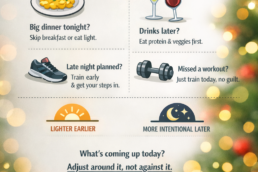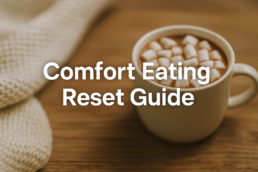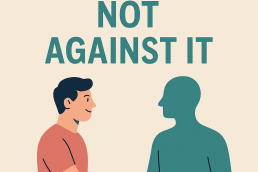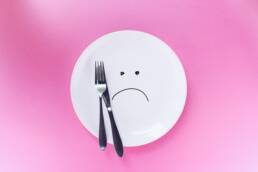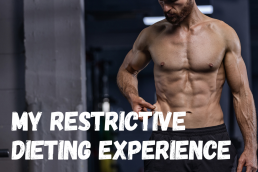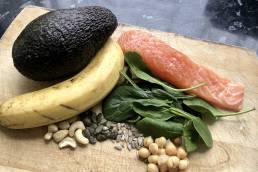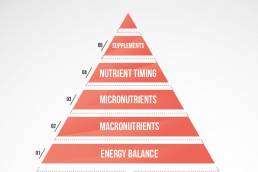28th January 2026
Fat Loss That Lasts: Build Maintenance While You Diet
People can lose weight. In fact, we are getting quite good at it.
Very few know how to keep it off when it’s lost. There are a number of reasons for this. The diet industry is one that doesn’t help, and the ever-changing environment we live in is also the biggest contributor to increases in bodyweight over the last few decades.
What you do while dropping body fat is what you will continue doing in maintenance. If your approach is extreme, maintenance will feel hard and restrictive.
If your approach is simple, scalable, and realistic, maintenance becomes normal life. We say this to all our clients, the plan we build with them we essentially want to become the life they want to live.
You don’t finish when the scale goal is hit. You continue with the habits that got you there.
I hope this guide helps. And if you have any questions, reach out to me directly ([email protected]).
Please feel free to forward this on to anyone you think might benefit.
These are the tools and habits you could build during fat loss so that maintenance feels stable, not stressful.
- Practice Mindful Eating From Day One
Most people wait until the end of a diet to “fix” their relationship with food or even the feeling of hunger.
That’s too late. You should train this skill while dieting.
Mindful eating means:• Eating without distractions• Slowing down your meals• Noticing hunger and fullness• Stopping when you are satisfied, not stuffed
When this becomes normal, you are far less likely to:• Overeat• Rebound• Lose control around food
Example: If you practice mindful eating every day during fat loss, by the time you reach maintenance, it feels automatic.
You don’t need willpower. You have awareness and can recognise when you aren’t aligned with the person you have become.
- Build a Movement Baseline You Can Keep
Fat loss should look like a routine you can live with.
Aim for:• 3 structured workouts per week• 8,000 to 10,000 steps on average per day
Not perfection. Consistency.
This teaches your body and brain:“This is just how I live now.”
When maintenance arrives, nothing changes.You don’t suddenly stop moving.You keep the same rhythm.
- Make Your Environment Work For You
Your environment shapes your decisions more than motivation ever will. If junk food is visible, you eat it. If protein and fruit are visible, you eat them.
Simple changes:• Keep high protein foods easy to reach• Remove trigger foods from sight• Plan meals before busy days• Don’t rely on willpower when stressed
Maintenance fails when your environment pulls you backwards.Design it to support you instead.
- Understand Stress and Emotional Eating
Stress does not make you hungry.Stress makes you crave comfort.This is where most rebounds happen.
You need tools before the hard days arrive:• Walks• Training• Journaling• Talking• Pausing before eating
Ask yourself:
“Am I hungry… or am I stressed?”
“Am I hungry… or am poorly slept?”
“Am I hungry… or am I overwhelmed?”
That pause alone changes outcomes.
- Protect Your Sleep Routine
Poor sleep increases:• Cravings• Hunger• Impulse eating
Good sleep improves:• Food choices• Energy• Self-control
Aim for:• A regular bedtime• Reduced phone use late at night• A wind-down routine
Sleep is not optional.It is part of fat loss, maintenance and longevity.
- Eat for Satiety: Protein and Fibre First
Your meals should keep you full. Not chasing snacks all day.
Prioritise:• Protein at every meal• Fibre from fruit and vegetables
This helps you:• Control appetite• Reduce cravings• Maintain weight without effort
Maintenance works when hunger is managed.
Not ignored.
- Train Discipline and Self Control
Discipline is not personality.It is a skill.
You build it by:• Keeping small promises• Repeating routines• Choosing long-term wins
Each day you practice:“I do what I said I would do.”
This carries into maintenance.You don’t fall back into old habits.You’ve trained new ones.
- Avoid the Finish Line Mentality
The biggest mistake:“I’ll maintain once I reach my goal.”
Maintenance is not a phase.It is a continuation.
The habits you use during fat loss should look like:• A normal week• A normal lifestyle• A routine you enjoy
If you can’t do it long term, it won’t last.
Final Thought
Most people diet.Very few prepare for what comes after.
For the busy parents and professionals we coach, the problem is not effort. It’s the approach. It’s the lack of a plan, support and accountability.
Common mistakes I see all the time:• Going all in for two weeks, then burning out• Training every day with no recovery• Cutting food too low and feeling exhausted• Doing juice cleanses or extreme fasts• Trying to be perfect instead of consistent• Letting one bad week turn into quitting
This usually looks like:High stress. Low energy. No time.
And a plan that doesn’t fit real life.
You don’t fail because you lack willpower.You fail because the strategy is not built for your schedule.
Fat loss could look like:• Two to three achievable workouts per week• Daily movement you can fit around work and family• Meals that keep you full and satisfied• Sleep that supports your decisions• Habits you can repeat when life is busy
Fat loss is the practice round.Maintenance is the real game.
Build the tools now:• Mindful eating• Movement• Sleep• Environment• Stress management• Protein and fibre• Discipline
That is how results stop being temporary.That is how they become permanent.
If you’ve struggled to maintain weight in the past, you don’t need another diet. You need better tools.
If you’d like to learn more about how online coaching worksand whether it’s right for you, you can read more here:https://lukegoulden.com/online-coaching/
Any questions please feel free to contact me directly at [email protected].
17th December 2025
Your Holiday Survival Guide
Your Holiday Survival Guide
The holidays are busy.
Social plans multiply.
Food is everywhere.
This is usually where routines slip.
Training drops off.
Meals become reactive.
People write the whole period off.
“I’ll deal with it in January.”
“I’ll reset in the new year.”
“It’s only a few weeks.”
That thinking feels harmless in the moment.
Ideally, we want to avoid this way of thinking.
The aim isn’t perfection.
It’s control.
It’s about staying steady during the messiest weeks of the year so January feels like a continuation, not a rescue mission.
You don’t need to do everything.
You just need to keep doing something.
If anything, we want to be imperfectly consistent.
These six strategies are designed for real life, not ideal conditions.
- Eat Slowly. Stop at “Satisfied”
This is the simplest and most effective tool.
When you slow down, two things happen.
First, your body catches up.
It takes around 15 to 20 minutes for fullness signals to reach your brain.
If you eat fast, you overshoot.
Second, enjoyment increases.
You taste your food.
You feel content sooner.
You stop chasing that “too full” feeling.
This means you can enjoy festive meals without guilt or regret.
Try this at your next meal:
Put your fork down between bites.
Take a breath before going back in.
Finish feeling comfortable, not stuffed.
Ask yourself.
Did I enjoy that?
Or did I rush it?
- Short Workouts Still Count
December doesn’t need hours spent exercising, but you do need to do something.
Consistency matters more than intensity (one of my favourite quotes).
A few short workouts each week will:
Maintain strength
Protect habits
Support energy and mood
Even 20 to 30 minutes is better than the workout you didn’t do.
Let’s not get into the habit of “if I can’t do it all, then I won’t bother” or “I’ll wait for when I can.”
Remember, we do this more for our own mental wellbeing than anything.
Ask yourself.
What’s the minimum you can do between now and the new year and still feel like yourself?
Momentum is everything.
And it doesn’t take much to keep things ticking over.
- Plan for Eating on the Go
December is a killer for routines.
More travel.
More late nights.
More of that feeling of having no control over what you’re eating because you’re out or other people are cooking.
We might not always have control of what’s in front of us, but we always have control over what we put into our bodies.
That’s where decisions slip, because we sometimes tell ourselves we don’t have control when we do.
If you are away from home, think forwards by planning backwards.
Examples that work:
High-protein snacks or shakes in your bag
Simple, repeatable meals in the fridge
Go-to supermarket options you already trust
This stops the “I was starving, so I grabbed whatever” spiral.
You don’t need perfect meals.
You need repeatable and predictable ones.
Something we work on with all our clients.
Ask yourself.
What’s my default option when time is tight?
If you don’t know this, you should.
Get one or two options ready and practise the habit of turning to them first.
- Use Protein Shakes Strategically
Letting yourself get overly hungry is one of the fastest ways to lose control.
That’s when overeating happens.
That’s when drinks turn into snacks.
That’s when choices become reactive.
A protein shake acts as a buffer.
High protein.
Quick to consume.
Easy when life is chaotic.
Have one earlier in the day.
Between events.
Or before a big meal if you’ve barely eaten.
You’ll arrive calmer.
Less reactive.
More in control.
Ask yourself.
Where would one shake make today easier?
- Use Portion Awareness, Not Tracking
Tracking calories over Christmas rarely works.
Meals are mixed.
Portions are unclear.
Accuracy drops.
Instead, use portion awareness.
At main meals, aim for:
A solid protein portion
Some vegetables
A sensible amount of carbs or fats
Then enjoy the extras intentionally.
You don’t need restriction.
You need balance.
One heavier meal doesn’t matter.
Several days of mindless eating does.
Check in with yourself.
Is this a conscious choice?
Or am I on autopilot?
- Eat More Vegetables Than You Think You Need
Vegetables do a lot of work this time of year.
They support:
Fullness
Digestion
Energy
Mood
They make rich meals easier to handle.
The key is preparation.
Roast them.
Season them properly.
Use oils, herbs, and flavour.
They don’t need to be boring to be effective.
Anchor meals around them when you can.
Ask yourself.
Have I added anything today that helps me feel better?
The Big Picture
The holidays don’t ruin progress.
Abandoning structure does.
You don’t need extremes.
You need anchors.
Move your body regularly.
Eat with awareness.
Fuel yourself before hunger takes over.
If you can stay steady in December,
you can stay consistent any time of year.
3rd September 2025
Comfort Eating Reset Guide for Busy Parents & Professionals
For the parents running on fumes. For the professionals battling long hours and constant stress.
If you find yourself snacking when you are not hungry, eating out of habit, or reaching for food at the end of a long day, this guide is for you.
This is not about counting calories. It is about resetting your habits, managing your environment, and building strategies to handle stress and cravings better.
1. Why Comfort Eating Happens
Comfort eating is not about hunger. It is about emotion.
Think of a long workday where the emails never stop, the kids are shouting in the background, and your energy is gone. The moment the house is quiet, you reach for food. Not because your body needs it, but because you need relief.
You eat to change how you feel. To cope with stress, boredom, anxiety, loneliness, or fatigue. It is a learned response. And it works temporarily.
Foods like chocolate, crisps, and biscuits light up the brain’s reward system. You get a quick dopamine hit and feel better for a moment. The more often you repeat that loop, the stronger it becomes.
Science backs this up. Stress triggers cortisol, your main stress hormone, which pushes your brain to seek quick energy. Ghrelin rises, your hunger hormone, even if you have eaten enough.
Lack of sleep blunts leptin, the signal that tells you you are full. Combine all of this, and cravings become harder to resist — not because you are weak, but because your biology is pushing you toward them.
2. Day-to-Day Tools to Regain Control
Small daily habits matter more than big one-off efforts.
To regain control, start with consistency.
Eat at regular times so you are not going long stretches without food, and build balanced meals that include protein, carbs, healthy fats, and fibre.
Make protein a focus at every meal to stay fuller for longer.
Stay hydrated, as thirst can easily be mistaken for hunger.
Walk daily, even for 10 to 15 minutes, to lower stress and reset your mood.
Prioritise your sleep, since poor rest increases cravings and weakens your decision making.
Audit your environment by keeping trigger foods out of sight and making healthier options easier to grab.
Plan ahead for high stress times like evenings after work by having a reset routine ready, whether that is herbal tea, a short walk, or reaching out to a friend or your coach.
Finally, practice a mindful pause before eating. Even 30 seconds of reflection can help you recognise whether you are truly hungry or just seeking comfort. Simple, predictable routines reduce chaos and give you more control.
3. In-the-Moment Strategies
The toughest time to stop is when your hand is already in the bag.
Here is how to break that loop:
Pause and ask yourself if you are actually hungry or just stressed, tired, or bored. Surf the urge.
Most cravings fade within 20 to 30 minutes. Move your body. Stretch, step outside, or walk around. Create space. Even 60 seconds of pausing can change the outcome.
Think of this as a step-by-step reset you can run in real time:
-
Notice the pattern: What is it that tends to trigger stress eating for you? Once you know the trigger, you can find a solution.
-
Delay: Tell yourself, “If I still want it in 10 minutes, I can have it.” Often the urge passes.
-
Replace: Swap the food cupboard or pantry with another ritual — a cup of tea, journaling or a quick walk.
-
Reframe: Eating will not change the argument you might have had today or the stress from work. But choosing a different response builds self-trust and gives you control. That is essential to build.
-
Action: If you can, take action on the thing that is stressing you. Sometimes 30 minutes of work is better than avoiding it and snacking while the stress builds.
It is not about never turning to food. It is about making sure it is not the only coping mechanism. Each time you break the loop, you prove to yourself that you can respond differently.
4. Build Your Toolkit
Food cannot be your only coping tool.
Build a go-to list of resets:
-
Sound: Music, podcasts, or white noise.
-
Movement: Walk, stretch, or light training.
-
Connection: Journal, send a voice note, or talk it out.
-
Environment: Open a window or tidy your space.
-
Sleep: Protect it. A rested brain makes better choices.
-
Physical practice: Regular workouts regulate mood and reduce stress.
Having other tools gives you options beyond food.
5. You Do Not Have to Eliminate It
Most people fail because they try to stop completely.
One bad day makes them think “I failed. I am back to square one.” That is not failure. That is being human.
And if you hit the f*** it button, everything is going to be okay. We all hit the f*** it button from time to time. How you respond from that point is what matters.
No writing the week off and starting again on Monday. Tomorrow is a new day to reset and aim to improve.
The win is reducing frequency, responding better next time, and recovering without guilt.
Progress looks like this: From four nights a week to two. Recognising it sooner. Bouncing back faster.
Aim for less, not never.
6. Your 7-Day Reset Plan
Forget willpower. This is about structure.
Day 1: Track food and mood for awareness.
Day 2: Create a routine of three meals and one or two snacks.
Day 3: Add one movement practice.
Day 4: Check your home food environment.
Day 5: Pause for one minute before your evening snack.
Day 6: Walk for at least 15 minutes outside.
Day 7: Review your wins. What worked? What did not?
7. Beyond the Reset: Building Long-Term Change
The reset is a starting point.
What keeps progress going is consistency over months, not perfection in a week. The goal is to create a system where healthy choices are automatic and comfort eating no longer feels like your only option.
That means:
-
Keeping structure in your meals, even on weekends.
-
Sticking to movement you actually enjoy.
-
Knowing your biggest triggers and having a plan for them.
-
Accepting slip-ups as part of the process, not proof you cannot change.
Over time, you train your brain to break the link between stress and food. The cravings still show up, but they no longer control you. That is the win.
Need Help Putting This Into Practice?
Knowing what to do is one thing. Following through is another.
That is where coaching helps.
👉 Learn more here
27th August 2025
How to Lose Fat Without Feeling Hungry All the Time
If you’ve ever tried dieting, you’ve probably experienced it.
Day one feels easy. Day two, meals are smaller but still doable. By day three, hunger hits hard.
Suddenly, food is all you can think about. Cravings ramp up, and sticking to the plan feels impossible.
Most people assume this is just part of dieting. That losing weight means constant hunger and all it takes is more discipline.
But that’s not the case.
The truth is, hunger doesn’t always come from being in a calorie deficit. It comes from how that deficit is created.
Many people simply cut their usual meals in half. If they normally eat two full plates of food, they shrink it to one. Same food, less of it.
Of course, that leaves you hungry. And once hunger builds up, cravings win, willpower breaks, overeating happens, and the cycle repeats.
So, how do you get leaner without fighting hunger every step of the way?
Here are six practical strategies.
1. Focus on food quality, not just calories
Calories drive fat loss, but not all calories keep you satisfied the same way.
Take a donut and an apple. Both are enjoyable, but one is 400 calories while the other is 100. You’d need four apples to match the donut’s calories and good luck finishing them. That’s because whole, nutrient-dense foods fill you up more per bite.
At first, cravings for highly processed, calorie-dense foods can feel like a battle. You’re used to reaching for them, and your body expects that quick hit of taste and energy. But over time, as you shift towards more whole, minimally processed foods, something changes. Many of our clients actually find themselves craving nutrient-dense meals because they feel better, stay fuller for longer, and have more energy.
That doesn’t mean cutting out your favourite foods completely. That is not the goal, it’s balance. You want to enjoy the “super tasty” stuff in moderation without letting it derail your progress. When you build most of your meals around whole foods, fitting in treats occasionally becomes easy without slowing down fat loss.
2. Make protein and fiber your foundation
Protein and fiber are the two biggest allies against hunger.
Protein slows digestion, stabilises blood sugar, and keeps you satisfied longer. Fiber adds bulk to your meals without piling on calories, helping trigger fullness signals.
When you combine them, it’s a simple way to stay full while still hitting a calorie deficit.
Build meals around foods like lean meats, fish, beans, lentils, oats, Greek yogurt, berries, and plenty of vegetables.
3. Time your meals wisely
It’s not just what you eat, it’s also when you eat it.
People who eat a solid breakfast and spread meals consistently through the day often experience fewer cravings and more stable energy.
Compare that to saving most calories for a massive dinner. Yes, it feels good in the moment, but if you’re heading to bed right after, that fullness doesn’t serve you much.
Spacing meals in a way that works for your lifestyle can make sticking to your plan far easier.
4. Pay attention to hidden factors
Sometimes hunger isn’t about food at all.
Poor sleep can lead to eating 400 to 500 extra calories the next day without realising it. Dehydration can feel like hunger when it’s just thirst. Eating at irregular times can confuse hunger signals and make cravings worse.
These aren’t complicated fixes. Just becoming more aware of them can make a big difference.
5. Watch out for liquid calories and “health halos”
Smoothies, juices, syrups in coffee, and even so-called healthy snack bars might sound like good options, but they often don’t keep you full. Liquid calories don’t trigger the same satiety signals as solid foods.
Think about apple juice versus an actual apple. The juice goes down in seconds and leaves you just as hungry, while the whole apple takes longer to eat, provides fiber, and helps you feel satisfied.
The same goes for oils and dressings. A tablespoon of olive oil adds 120 calories to a meal without giving you any fullness in return. Used in moderation, oils can be a healthy part of your diet, but it’s easy to pour too much and rack up calories you don’t notice.
Coffees with syrups and flavourings are another hidden source. They can turn a simple drink into a 300–400 calorie hit without offering much satiety.
6. Eat with awareness
It’s not just what you eat, it’s how.
Many people rush meals or eat while distracted, and research shows this leads to eating more and feeling less satisfied. Simply slowing down, chewing properly, and eating without your phone or TV can make a noticeable difference.
When you give your body time to register fullness, you’ll often find you need less food to feel satisfied.
7. Understand that hunger isn’t always physical
Sometimes what feels like hunger is actually boredom, stress, or habit.
Checking in with yourself by asking “am I truly hungry, or am I looking for comfort” can stop unnecessary snacking before it starts.
This isn’t about ignoring hunger, it’s about learning to tell the difference between physical and emotional needs.
8. Stay consistent on weekends
A lot of people stick to structure during the week, then undo their progress on Saturday and Sunday. The same principles, protein, fiber, whole foods, and balanced meals, matter just as much at the weekend.
Finding ways to keep your approach consistent across all seven days is what leads to real results.
9. Expect an adjustment period
The first week or two of changing your eating habits will always feel harder. Cravings are stronger, old habits are still there, and your body hasn’t fully adapted yet.
The good news is this doesn’t last forever. As your body adjusts, hunger becomes easier to manage and the pull towards ultra-processed foods starts to fade. Over time, many people are surprised to find themselves actually wanting more nutrient-dense meals because of how much better they feel.
It’s worth remembering that progress takes time. Patience really is key. There will be days where you feel on top of the world and others where it feels tougher, and that’s completely normal. Ups and downs don’t make you weak, they make you human.
The real win comes from staying consistent, not chasing perfection. Keep showing up, keep making the next best choice, and the results will take care of themselves.
The takeaway
Dieting doesn’t have to mean constant hunger.
Hunger isn’t a battle you just push through, it’s something you can manage with the right strategy.
When you build your approach around food quality, protein, fiber, meal timing, and lifestyle habits, fat loss becomes far more sustainable.
Please feel free to message me if you have any questions!
7th January 2023
Why January diets work. Just not for you.
It’s a busy time of the year for companies who have a diet to sell, something new and shiny promising you the body of your dreams, that if you follow their diet and plan you are guaranteed to shed that weight.
It’s a competitive market and they are out there right now appearing all over your web browsers, sponsored links on popular websites vying for your attention, money and insecurities with click bait headlines.
And it’s a lengthy list of diets, plans, and clubs ranging from juicing, still popular, to Keto and intermittent fasting which seems in vogue right now to the classic pyramid schemes like Herbalife.
And let’s be real intermittent fasting is a fancy word for skipping breakfast, not to say it doesn’t have its benefits but let’s just call it what it is.
It’s an industry worth billions of pounds and these companies are all out for a share of that pie.
And they know you have probably gained some weight after Christmas due to the abundance of food and guilt you are probably feeling and are at your most vulnerable.
January diets work, no doubt about it, they are all really effective at creating a calorie deficit. You go from eating food, to drinking juices, cutting out all the carbs or salads only you will lose weight.
The question, can you maintain it long-term?
If you can’t, you will unequivocally regain the weight you lose.
So before you part with your money and jump on the band wagon of another January diet it’s important to know that the single most effective diet for weight loss across the board.
Doesn’t exist.
None of them are more superior to the other and there’s tonnes of research now to support this.
What matters is sticking to it long-term, which means the most effective diet is in those who are most adherent.
So, if you are someone who has struggled losing weight, bounced from diet to diet or keep regaining any weight you lose where should you start.
You already have a diet of food and drink you regularly consume, these are your nutritional habits and behaviours, start here.
Rather than succumbing to another January diet, spend less money and more time understanding the diet you have and what you can do to improve that.
Rarely is anything drastic required to create a negative calorie deficit, its often-implementing small lifestyle changes over time that you can sustain.
It means you can still live your best life and lose weight.
For more hints and tips follow @lukegouldencoach.
30th May 2021
The Aftermath Of An Unsustainable Diet. My Experience With Restrictive Dieting & Rebound.
This is my totally honest and open account of my experience with restrictive dieting, and not just the diet itself but the rebound from weeks and weeks of restriction.
Why am I sharing my experience?
The diet industry is a multibillion-pound industry with notably a very low success rate, and it’s not just because of weight-loss, because so many of us can actually lose weight, but because those who do manage to achieve weight loss gain it all back.
Weight regain or diet rebound statistics don’t leave for good reading, and not only do 60-70% people regain the weight back many people go on to gain more weight than when they started.
With obesity on the rise who helping these people who are actively trying to make a positive change to their health?
Why are these statistics not changing? Why is the diet industry failing people?
According to the British Nutrition Foundation 25% of men and 20% of women in the UK are considered obese, and a further 42% and 32% respectively were overweight according to BMI measurements.
The diet industry is a money-making monster, and it’s seems common knowledge that diets in general have a very low success rate.
Which means the big winners here are the companies taking a slice of the billions spent by unsuspecting people simply trying to change their body because they aren’t happy with it.
Toxic companies selling quick fix fad diets endorsed by B list Love Island celebrities that do nothing other than harm to both our wallets and our mental and physical health.
I massively underestimated the fall out from a restrictive diet and what I thought would turn in to one day of eating what I wanted soon turned into an entire week and then rolled into two weeks before I managed to curb what felt like uncontrollable binging.
It was a few days after I had finished my transformation, I had a lightbulb moment and realised what was happening.
So this is why the diet industry is worth absolutely billions?
I’m getting a small taste of it and if I’m not careful il be another person contributing to the statistics.
Being a personal trainer and coach, I take pride in supporting people, there is nothing that fulfils me more than supporting people to a healthier more confident place.
And this experience albeit leaving me in tatters mentally, has completely opened my eyes to the struggles millions of us have each year.
It has been an invaluable learning experience for me and has done nothing other than reinforce my belief that food restriction of any form simply doesn’t work and can have a hugely detrimental impact on your mental health, how you feel about yourself and your confidence.
Restrictive dieting is damaging on so many levels, there is not long term
What is the solution?
Well, it’s not in the quick fix section in Holland & Barratt or last year’s Love Island Instagram page.
It requires a degree of knowledge, education, self-love, self-belief, discipline, and dedication to change.
Long term sustainability is key which means if you can’t wait for your diet to be over you are in trouble?
First, we must recognise that losing weight is really difficult, your body will aggressively defend its energy reserves at the first sign of weight loss.
This doesn’t mean it’s impossible just a little harder, especially since you can get a McDonalds delivered to your door without moving nothing other than a finger.
2nd April 2019
Health Hack! Magnesium Rich Foods
It makes sense to fuel our bodies with the best possible food we can. Or at least try to more often than not.
I have mentioned magnesium and important a number of times whether it be through supplementation or food.
Magnesium is involved in over 300 chemical reactions within the body and if you exercise frequently levels can soon become depleted. It helps to maintain normal nerve and muscle function, promotes a healthy immune system, can regulate blood pressure and keep our bones strong.
If you needed anymore of a reason to up your magnesium levels check this study out!
There was a double blind placebo controlled study published in the journal of research and medical sciences. All participants had chronic sleep issues.
Now for the results.
The group taking the magnesium supplement had dramatically improved sleep onset meaning they fell asleep quicker. Overall sleep time and efficiency improved meaning sleep cycles were more efficient.
Furthermore there were improvements in melatonin and reduced serum cortisol all from improved levels of magnesium. And trust me when I say these are both crucial for creating a great sleep environment.
How to up your Magnesium game.
Anything green will help along with fish, nuts, seeds and various fruits. Keep focussing on whole foods, vegetables and fruits. It doesn't need to be perfect it just needs to be the best you can make it.
Thanks for reading
Luke
25th April 2018
Fat Loss Food For Real People Volume 4: Binge Eating!
Binge Eating. It’s the dirty little secret none of us like to admit we do. What I consider binge eating, and what you consider binge eating may be two different things, for me, and I am happy to openly admit it is something I struggle with, walking past an off license or somewhere that sells something of the chocolate variety, walking in making a purchase, for no particular reason, consuming and telling myself it’s okay I trained hard today. For me, that is binge eating and something I do FAR too often. For others it could be classed as eating late at night or going mad at the weekends having starved yourself Monday to Friday. Whatever it is, it is a behaviour many of us have.
There are probably multiple factors as to why you and I ‘binge eat’. You might actually not be eating enough throughout the day, you might not give a shit about the additional calories, or you might have a mild addiction to the feeling binge eating gives you for that very short period of time. Whatever it may be lets look at the most likely cause and what we can put in place to reduce the amount we 'binge'.
So what’s the deal with this uncontrollable desire?
Whether its drinking, eating, shopping, different binge behaviours actually have similar causes and unbeknown to us all there are a multitude of factors causing us to do so.
It’s definitely deeper than just eating something, our brains release a chemical called dopamine when we eat something that is palatable and tasty. And non-surprisingly it feels really good, so much so we do it again, and again until its becomes so ingrained in our behaviour we barely notice it. Unfortunately the same cannot be said for our waistlines.
Its this daily feel good hit of dopamine we essentially become addicted to. And looking at the bigger picture, it can be this small daily decision you're making that might also be inhibiting you from losing weight/fat if that is your goal. And if weight-loss/fat-loss is your goal then you shouldn't be consuming refined high fat high sugar foods anyway.
On top of this small feel good hit many of us have to deal with the daily stresses and pressures of life, providing for a family, working long hours, dealing with people in the office you cant stand the sight of. All of these factors can lead to behaviour that becomes harder and harder to control.
What can you put in place to help?
- Adequate calories. You might not actually be eating enough throughout the day. So have a look at your main meals and do they contain an adequate amount of protein. If you aren't consuming enough calories of lets say decent nutritious food the the likelihood of eating something high in fat and sugar will be higher.
- Breaking the habit! Try a different route that is less likely to take to past something you potentially might walk in. It sounds silly, but you might not even be aware of how habitual this behaviour has become and what triggers you.
- Make a better choice. Rather than buying something deemed unhealthy maybe buy some fruit. Pineapple or mango both taste sweet and might do the job of something wrapped or packaged.
- Stay disciplined. Find a reason as to why you want to prevent or reduce your current binge behaviour. Summer is almost here and with the recent heat wave I have already witnessed a mass panic. Use it to your advantage.
- Make a better decision. You don't have to walk far to find something free of something, gluten free, low calorie, vegan. Its out there and accessible find out a few options that will help you with whatever it is you want to achieve.
Indulging is fine and training hard certainly gives me more freedom with my food choices. Overindulging and sitting on your arse all day in and office though is not something I would recommend.
Ultimately like anything your level of discipline and adherence will be the determining factors but implementing the above might help you stay on the straight and narrow.
27th September 2017
Fat Loss Food For Real People Volume 2: Is the Diet the problem?
Is losing excess body fat hard? Yes and no, it’s certainly easy to make it difficult with an overhaul approach, and in my experience the ultimate defining factor in whether you can be in a happier place with how you look naked won’t be the diet itself but how well you can adhere to what you originally set out to do. Get a little leaner, right? You don’t need to take the ‘Hare’ approach, the tortoise method will be more sustainable long term and doesn’t need to be complicated.
The list is endless with diet upon diet which vary from juicing to a magical fat burning coffee. Putting the marketing 'bs' aside the main contributing factors that'll increase your risk of failure are a complete overhaul of your diet, diets that require drastic changes in lifestyle and setting unrealistic goals for yourself.
Let’s look at the fundamentals of basic nutrition and why having some accountability for what you put in your mouth is more important than the diet itself because adherence and discipline are often the defining factors in whether you achieve what you set out to do.
Firstly, start nailing the basics, stop buying and eating shit. In my latest blog, I addressed the fundamentals of nutrition and what should make up your plate. Start buying less high fat high sugary foods, the sweet tasty foods that are calorie dense and are not conducive to fat loss and putting higher protein foods and vegetable in your fridge at home. Higher protein foods will keep you fuller for longer, so aim to have 3 portions per day. This could be scrambled egg on toast for breakfast, a Healthy Living Tesco meal deal, and a meat of your choice for dinner, with sweet potato and a big handful of vegetables. And yes, I just recommended a Tesco meal deal purely because I see many being purchased. Maybe have a think before picking up the BLT sandwich, full fat coke and packet of crisps though.
I admit working in the City doesn’t make life easy if dropping body fat is your goal but I refuse to believe today that most people don’t know what is good or bad food especially now with what is readily available. Whether it’s the Tesco meal deal mentioned or a wrap from Pret. Most of the food you have the opportunity to purchase will provide information on calories and the macronutrients, so look at them. The Tesco Healthy Living Egg & Cress sandwich has 132 less calories than the standard Egg & Cress sandwich in Tesco. I’m using this simply as an example of a smarter decision that needs to be made daily.
Your level of adherence and staying disciplined will ultimately be the difference between a leaner happier you to you being the person you tell yourself everyday ‘I’ll start next week’. When I use, the term disciplined, I mean not popping into Sainsbury’s and buying a chocolate bar or sinking 3 pints on a Thursday lunch hour. This is something you’re doing for you and you alone, so when your colleague asks if you fancy a couple of pints don’t take the easy option and say yes. When you going to pay for your lunch, choose not to pick up that Mars bar. Be mentally prepared for everything around you to be against you from the sugary snacks strategically placed along the aisle to the excess calories consumed from alcohol on a Thursday lunch.
This leads nicely on to the environment we create for ourselves. Biscuits on your desk, ice cream in the freezer, chocolate in the cupboards. I am certainly an advocate of eating food that I like the taste of. But I train hard, I move a lot all day every day and if you aren’t willing to at least hit a 10,000 a day step count then such foods need to be removed from your working and living environments.
Lastly remember your ‘why’. The reason you set out to do this in the first place. This is for you and you alone, no one else so take that into each day and the results will come. In a month or two you’ll have friends and family saying how great you look, the colleague who keeps asking you for lunch time pints will start asking you how you’re looking trimmer. And what I believe is the most important factor, your confidence will massively improve, along with your health and all of this will have a knock-on effect to how you eat, eating healthier foods will become habitual and you will be moving more without realising it.
So take some responsibility, hold yourself accountable and focus on the reasons why.
- 1
- 2

